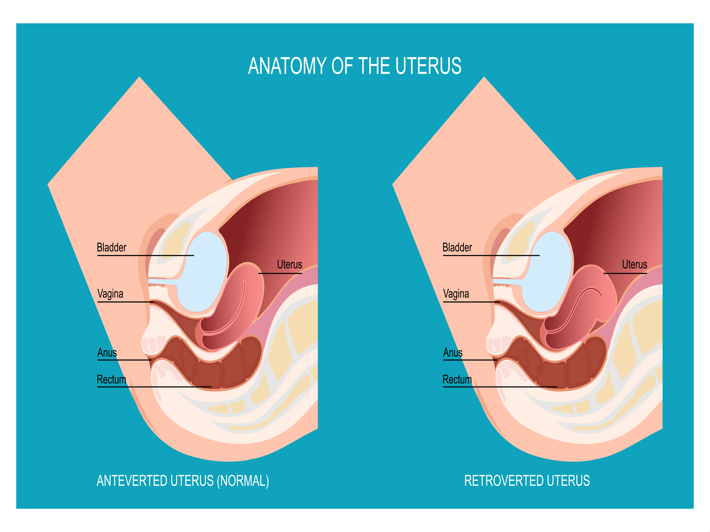The uterus is one of the most vital organs in a woman’s body—it is where a baby grows throughout pregnancy until delivery. A normal uterus is a hollow, muscular organ shaped somewhat like an upside-down pear and is connected to the fallopian tubes and ovaries on either side. (1)
Before exploring the different uterine shapes, it’s important to understand how the uterus typically forms. During fetal development, the uterus forms from two tubes called Müllerian ducts, which fuse before birth to form a single uterus. However, if this process doesn’t complete properly, it may result in an atypical uterine shape in some women. (2)
What Are the Different Uterine Shapes?
Studies show that around 5–10% of women have a uterus that differs from the typical shape. The most common variation is the arcuate uterus, which is very close to the normal shape and usually does not affect fertility or pregnancy. (3)
Other uterine anomalies may make pregnancy more challenging or increase the likelihood of complications such a miscarriage, cesarean delivery, or preterm birth. (3)
Arcuate Uterus
This shape is almost identical to a normal uterus, with a slight indentation at the top. It does not affect fertility, increase the risk of miscarriage, or cause complications—it's simply a mild and harmless variation. (2)
Bicornuate Uterus
Also known as a “heart-shaped uterus” due to a noticeable indentation at the top, giving it a heart-like appearance. The uterus may appear to have two “horns” on either side, which is how it gets its name. (4)
Women with a bicornuate uterus can usually conceive naturally. However, there is a slightly higher risk of second-trimester miscarriage as the uterine shape may limit fetal growth. Cesarean delivery is also more likely due to the abnormal shape, which can make it harder for the baby to turn head-down. (4)
Septate Uterus
Also known as a uterine septum, this condition is characterized by a band of tissue that divides the uterus into two parts—similar to the nasal septum. This tissue can divide the uterus completely or partially.(4)
Women with a septate uterus may have more difficulty getting pregnant and a higher risk of first-trimester miscarriage or needing a cesarean section. However, the septum can often be treated with a minimally invasive hysteroscopic procedure, especially in women with recurrent miscarriage or difficulty conceiving. (4)
Unicornuate Uterus
In this type, the uterus doesn't fully develop and is approximately half the size of a normal uterus—often resembling a banana in shape. (2)
Women with a unicornuate uterus can sometimes carry a pregnancy, but they face a higher risk of complications, including: (4)
- Infertility or difficulty conceiving
- Ectopic pregnancy
- Miscarriage (especially after the first trimester)
- Preterm birth
Uterus Didelphys (Double Uterus)
In this case, there are two separate uterine cavities, each with its own cervix. In rare instances, there may even be two vaginas. (4)
Women with a double uterus usually don’t have difficulty conceiving but may require more frequent monitoring during pregnancy due to a slightly increased risk of preterm labor. (4)
Infantile Uterus (Uterine Hypoplasia)
This congenital anomaly involves underdevelopment of the uterus, leaving it smaller than normal, and often leads to issues such as absent menstruation, pelvic pain, or difficulty conceiving. (5)
What Is the Normal Uterine Position? What About a Retroverted Uterus?
Most women have an anteverted uterus, meaning it tilts slightly forward toward the abdomen—this is the normal and most common position. (6)
However, in some cases, the uterus is retroverted, meaning it tilts backward toward the spine. This doesn’t usually affect fertility, though it may cause pain during intercourse. (6)

How Do I Know If My Uterus Has a Normal Shape?
Most women are unaware of the shape of their uterus unless they undergo an internal examination or MRI, which gynecologists may recommend in cases such as delayed conception, recurrent miscarriage, or menstrual irregularities. (2)
Are You Having Trouble Conceiving or Experiencing Repeated Miscarriages?
Would you like to check your reproductive health? The Obstetrics & Gynecology Department at Al-Ahli Hospital is here to help. Book your appointment today.
References
- Canadian Cancer Society - The uterus
- Pregnancy Birth and Baby - Uterine differences
- Contemporary OB/GYN Journal - Uterine anomalies in pregnancy
- Verywell Health - An Overview of the Types of Uterus in Females
- Orphanet - Uterine hypoplasia
- Cleveland Clinic - Anteverted Uterus







